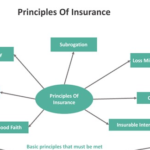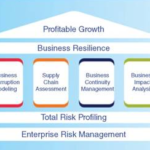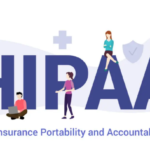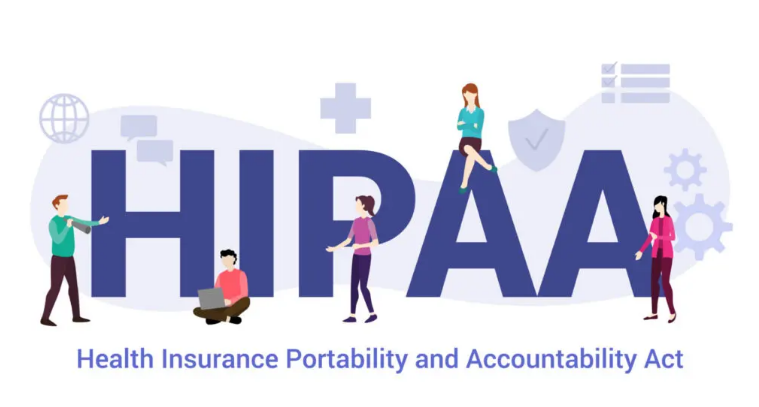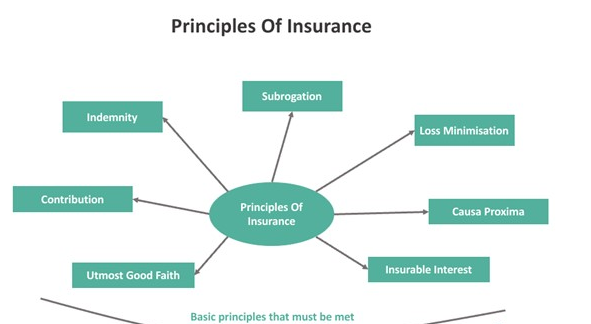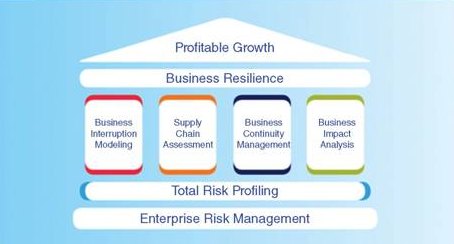In the digital age, the marketing and advertising of healthcare services and products have become increasingly complex. As more businesses in the healthcare industry seek to reach consumers through various channels, ensuring compliance with privacy laws has become a critical concern. The Health Insurance Portability and Accountability Act (HIPAA) stands as a fundamental law that governs the use and disclosure of patients’ personal health information (PHI) in the United States.
For healthcare providers, insurers, and businesses that handle PHI, advertising and marketing efforts must be carefully navigated to avoid violations of HIPAA’s strict regulations. This article explores the intersection of HIPAA and marketing, delving into the challenges and considerations for businesses engaged in advertising healthcare services, the role of PHI in marketing, and strategies to comply with HIPAA while still engaging in effective marketing.
Understanding HIPAA and Its Impact on Marketing
HIPAA, enacted in 1996, was designed to protect individuals’ medical information while ensuring that the healthcare industry could operate efficiently. The law outlines strict rules about how healthcare providers, insurers, and other entities, known as “covered entities,” must handle and protect PHI. In 2009, the Health Information Technology for Economic and Clinical Health (HITECH) Act expanded HIPAA’s privacy and security provisions to cover “business associates” — third-party organizations that perform services on behalf of covered entities and handle PHI.
HIPAA’s Privacy and Security Rules place specific restrictions on how PHI can be used, including in marketing and advertising efforts. The key considerations for marketing under HIPAA include:
- Definition of PHI: PHI refers to any information related to an individual’s health status, medical treatment, or payment for healthcare services that can be linked to an individual. This can include names, addresses, phone numbers, email addresses, medical records, and even information like appointment dates or billing records.
- Marketing Under HIPAA: HIPAA defines marketing as any communication about a product or service that encourages recipients to purchase or use that product or service. If marketing communications use or disclose PHI, HIPAA generally requires the covered entity to obtain the patient’s explicit written authorization. There are, however, exceptions to this rule, which we will explore in more detail.
- Penalties for Non-Compliance: Violating HIPAA’s privacy or security rules can lead to severe penalties, including hefty fines and, in some cases, criminal charges. Fines can range from $100 to $50,000 per violation, depending on the level of negligence, with an annual maximum of $1.5 million. Given the stakes, covered entities and business associates must take extreme care when planning marketing campaigns.
HIPAA Marketing Guidelines and Exceptions
While HIPAA’s restrictions on the use of PHI for marketing are stringent, there are exceptions that allow healthcare providers and related entities to engage in certain types of marketing without obtaining patient authorization.
- Communications for Treatment and Healthcare Operations: HIPAA allows covered entities to communicate with patients about treatment and healthcare operations without authorization. This includes:
- Appointment reminders: Sending patients reminders about upcoming appointments.
- Information about treatment alternatives: Informing patients about different treatment options for a condition they are managing.
- Health-related services: Promoting health-related services that may be of interest to the patient, provided that these services are part of the patient’s ongoing care.
- Face-to-Face Communications: HIPAA allows face-to-face marketing without patient authorization. For example, if a patient visits a healthcare provider’s office, the provider can discuss new products or services directly with the patient. Similarly, distributing promotional materials in person (e.g., brochures about a new medical device) is permissible under HIPAA.
- Promotional Gifts of Nominal Value: Healthcare providers may also give patients promotional gifts of nominal value without obtaining authorization. This could include items like pens, notepads, or branded materials.
- Communications to Individuals Already Receiving Services: If a healthcare provider is recommending a new service or treatment to an individual who is already receiving care, that communication is not considered marketing under HIPAA. For example, a dentist suggesting a new type of dental cleaning to an existing patient does not require patient authorization.
When Patient Authorization is Required
In many cases, however, healthcare marketing requires explicit patient authorization. This is particularly true when the marketing involves disclosing PHI to third parties or when the primary intent of the communication is to encourage the purchase of a product or service. Below are the situations where HIPAA mandates obtaining patient authorization:
- Third-Party Marketing: If a healthcare provider or insurer is paid by a third party to market a product or service, HIPAA requires patient authorization before PHI can be disclosed. For instance, if a pharmaceutical company pays a healthcare provider to send marketing materials to patients about a new drug, the provider must obtain authorization from each patient before using their information for this purpose.
- Sale of PHI: HIPAA prohibits the sale of PHI without patient authorization. This includes any transaction where PHI is exchanged for financial remuneration, regardless of whether the information is used for marketing or another purpose. Patient consent must be obtained if a covered entity intends to sell PHI to a third party for marketing purposes.
- Marketing for Commercial Gain: Any communication that uses PHI to promote a product or service for the primary purpose of commercial gain requires patient authorization. This could include sending marketing emails or letters that encourage patients to purchase a specific healthcare product or enroll in a paid program that is not directly related to their care.
Best Practices for HIPAA-Compliant Marketing
Navigating the HIPAA marketing rules can be challenging for healthcare providers, insurers, and their business associates. However, with careful planning and adherence to best practices, it is possible to engage in effective marketing while remaining compliant with HIPAA regulations.
- Obtain Patient Authorization When Necessary: Whenever marketing communications involve the use of PHI for purposes beyond the scope of treatment, healthcare operations, or the other exceptions provided under HIPAA, it’s critical to obtain explicit patient authorization. Authorization forms must be clear and detailed, explaining exactly how the patient’s information will be used and disclosed. The patient must sign the form voluntarily, and they have the right to revoke their authorization at any time.
- Limit the Use of PHI in Marketing: To minimize the risk of HIPAA violations, covered entities and business associates should avoid using PHI in marketing materials whenever possible. For example, rather than sending emails or direct mail that references specific medical conditions, marketers can focus on general health topics or services that apply to a broader audience.
- Focus on Permitted Communications: Providers can engage in marketing activities by focusing on communications that fall under HIPAA’s exceptions, such as treatment-related messaging or appointment reminders. By framing marketing efforts within these permitted categories, healthcare providers can reach patients with valuable information without the need for authorization.
- Ensure Business Associate Agreements Are in Place: If a covered entity is working with third-party vendors to assist with marketing (e.g., email marketing services, advertising agencies, or data analytics companies), it’s essential to have a Business Associate Agreement (BAA) in place. The BAA should outline how the business associate will handle PHI and ensure that they comply with HIPAA’s privacy and security rules.
- Train Marketing and Compliance Teams: Healthcare organizations should ensure that their marketing teams are fully trained on HIPAA regulations and understand the limitations and requirements regarding the use of PHI in marketing efforts. Marketing professionals should work closely with compliance officers and legal teams to vet campaigns for potential HIPAA violations before launching them.
- Audit and Monitor Marketing Efforts: Conduct regular audits of marketing practices to ensure ongoing compliance with HIPAA. This can include reviewing communications to verify that PHI is not being used improperly, assessing the security of data transmission channels, and confirming that patient authorizations are in place when needed.
The Role of Digital Advertising in Healthcare Marketing
In addition to traditional marketing methods like direct mail or face-to-face interactions, healthcare organizations are increasingly turning to digital advertising to reach consumers. Digital platforms, such as social media, search engines, and email marketing, present unique challenges when it comes to HIPAA compliance.
- Social Media Marketing: Healthcare providers must exercise caution when using social media for marketing, as social media platforms are public by nature. Sharing any identifiable patient information or engaging in discussions about specific patients or their conditions can violate HIPAA. Even seemingly innocent interactions, such as responding to a patient’s comment about their treatment, can inadvertently disclose PHI.
- Email Marketing: Email marketing is a popular way for healthcare providers to communicate with patients, but it must be done in a HIPAA-compliant manner. Emails containing PHI must be encrypted, and marketing emails that involve the use of PHI require patient authorization. In cases where marketing emails are permitted without authorization (e.g., appointment reminders or general health tips), marketers should ensure that they do not inadvertently include PHI in the content.
- Search Engine Marketing and Retargeting: Search engine marketing (SEM) and retargeting can be powerful tools for reaching potential patients online, but they raise HIPAA concerns when PHI is involved. Healthcare providers should avoid using identifiable patient data to target ads or remarket to patients. Instead, SEM campaigns can be designed around keywords related to general health conditions or services rather than specific patient information.
Conclusion
HIPAA plays a critical role in shaping how healthcare organizations engage in marketing and advertising. While the privacy rules under HIPAA may seem restrictive, they are designed to protect patients’ sensitive health information and ensure that marketing efforts are conducted responsibly and ethically. By understanding the limitations HIPAA places on marketing, healthcare providers, insurers, and business associates can craft compliant marketing strategies that reach their audiences without violating privacy laws.
Maintaining HIPAA compliance requires vigilance, careful planning, and collaboration between marketing, legal, and compliance teams. Ultimately, by adhering to HIPAA’s rules and focusing on patient-centric marketing, healthcare organizations can effectively promote their services while safeguarding patient privacy.

